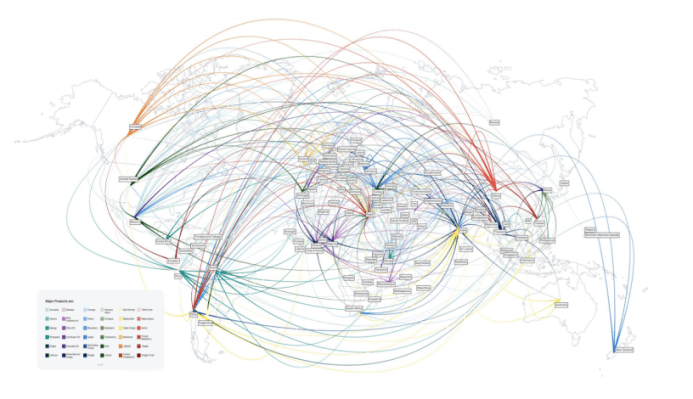Supply chain disruption caused by the COVID-19 pandemic and the war in Ukraine is driving increased costs of goods and services, affecting not only the industrial sector (e.g., semiconductors), but also the agriculture industry. Global food prices have dropped for three consecutive months but still remain relatively high compared to last year, per the 2022 report by the Food and Agriculture Organization of the United Nations.
South Korean startup Tridge wants to address the issue via its online trade platform that matches global food agriculture buyers and sellers. The platform helps from research to ordering and enables buyers to source their food and agriculture items at reasonable prices in more than 150 countries. Vendors can also diversify their sales channels and find buyers (at the proper time) for perishable foods.
Tridge said Thursday it has secured $37.2 million (50 billion won) in a Series D funding round at a postmoney valuation of $2.7 billion. The latest funding, led by South Korean private equity firm DSAsset, brings Tridge’s total financing to $111.7 million since its inception in 2015.
The new valuation represents about 440%, or 5.4x, increase over Tridge’s postmoney valuation of $500 million in July 2021 when it raised $60 million in its Series C from Korean venture capital firm Forest Partners.
Tridge says its valuation has soared in about a year because it has generated revenues in Tridge’s fulfillment service business since September 2021 after raising the Series C round. Tridge, which posted less than $7.4 million (10 billion won) in sales last year, now generates between $15 million and $23 million in sales per month, according to the company.
Its fulfillment solution serves as a middleman for more than 15,000 agricultural products, enabling buyers to source and get delivered on time. Additionally, more than 100,000 suppliers across 150 countries can sell their food and agriculture products on Tridge’s platform. The company’s market intelligence service, launched in 2020, offers food supply chain analysis and market reports of agricultural products and commodities like apples, strawberries, tomatoes, avocados, black peppercorn, coconut, garlic, seafood and coffee beans. Tridge owns data covering approximately 15,000 agricultural products with 50,000 price updates. (The company claims it has amassed more than 1 trillion data points cumulatively.) That means users can check current and previous wholesale prices, volume, and market share of every agricultural product Tridge covered.
“Now there are a lot of actual transactions [on Tridge’s platform] occurring in many countries, including the U.S., Brazil, Turkey, India, Vietnam, Australia, Tanzania, the Netherlands, and Canada,” Hoshik Shin, founder and CEO of Tridge, told TechCrunch. “The sales have been on the rise since September last year.”
Shin noticed information asymmetry between food agriculture buyers and sellers in the commodity market back in 2012 when he struggled to supply 60,000 tons of coal for Korean and Japanese steel companies in his capacity as a commodity investor at an investment bank. After paying a higher price for the coal due to the lack of transparency and information, Shin founded Tridge to address this issue.
“Tridge is trying to solve problems such as global supply chain collapse and agflation,” Shin said. “With this investment, we will accelerate overseas expansion plans.”
Tridge claims it has 447,786 users today, up from 343,401 users in June 2021. The startup’s customers range from farmers to global retailers, including Costco, Kellogg’s, Walmart, Nestle, Dole, Sysco, Lotte Mart, Mitsui & Co., Carrefour and Indofood.
The number of its customers naturally increased as demand for platforms like Tridge in the agriculture industry surged during the coronavirus pandemic that restricted travel and face-to-face meetings, according to the company.
Tridge plans to use the newly secured capital to launch new services, invest in its technology, and further expand its overseas business, focusing on the U.S., Europe and other countries such as Turkey, Brazil, India, Vietnam and Tanzania, Shin said. Its previous backers include SoftBank Ventures Asia and Activant Capital.
The Seoul-headquartered company, which currently employs about 600 people, has set up offices in 45 countries across the globe, including in the U.S. and Europe.
